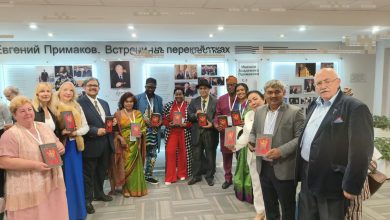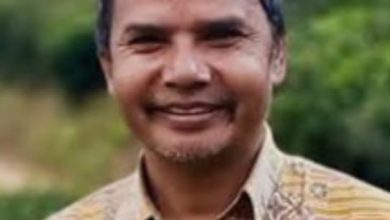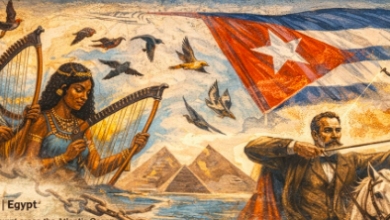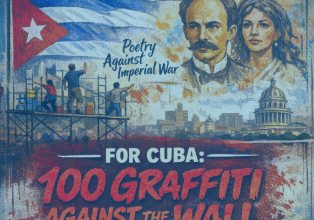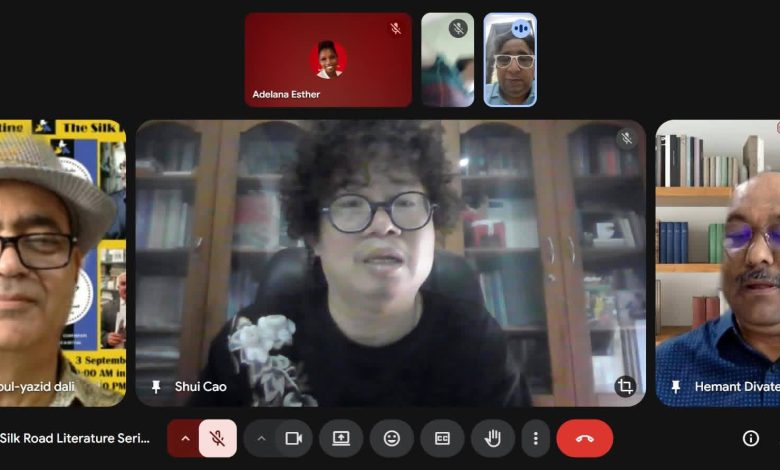
The Silk Road Literature Series hosted its Three Continents Creative Meeting on Wednesday, 3 September 2025. In an hour online gathering, six authors from across three continents presented their works translated into Arabic by their host, the Egyptian poet and novelist Ashraf Aboul-Yazid.
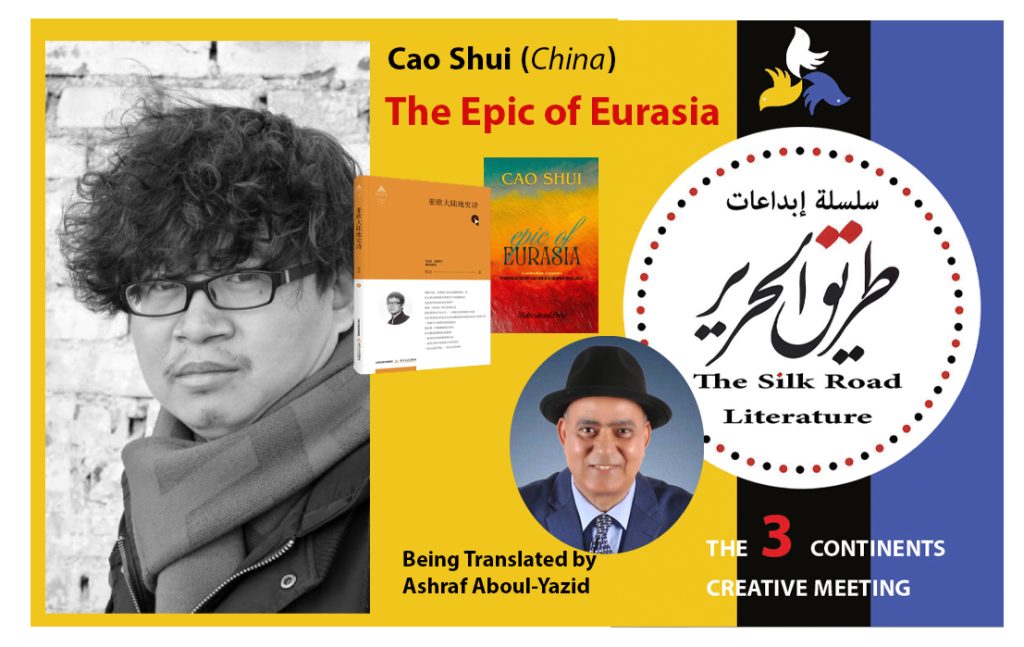 The session continued with Cao Shui (China) and his monumental project Epic of Eurasia, an ambitious literary undertaking set to be published next year by the Cairo-based Al Nasher Publishing House, founded by Egyptian poet Magdy Aboul-Khier.
The session continued with Cao Shui (China) and his monumental project Epic of Eurasia, an ambitious literary undertaking set to be published next year by the Cairo-based Al Nasher Publishing House, founded by Egyptian poet Magdy Aboul-Khier.
Cao Shui is a Chinese poet, novelist, screenwriter, translator, and leading figure in contemporary Chinese literature. Courtesy name Yaou (Eurasian) and pseudonym Lord of the Tower of Babel, he is founder of the Great Poetry Movement, seeking to unite sacred and secular, Eastern and Western, ancient and modern cultures. Author of over 46 books, including Epic of Eurasia, the Secret of Heaven trilogy, and King Peacock, his works—translated into 26 languages—envision a free humanity. He lives in Beijing, serving as editor of Great Poem and deputy editor of World Poetry.
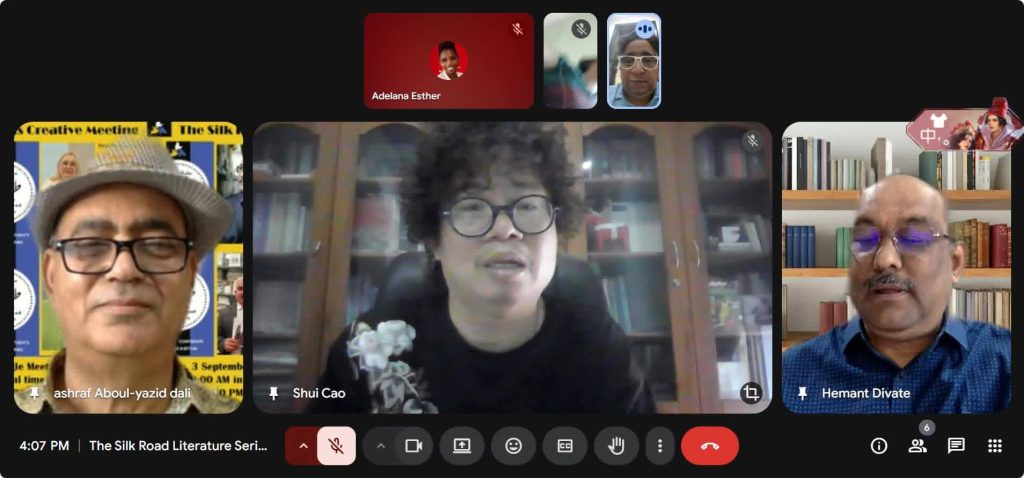
Cao Shui said, in a word entitle: Eurasia, the Cradle of the Seven Major Civilizations of Humanity:
“About 100000 years ago, African Homo sapiens arrived in Mesopotamia and traveled east and west from here, from Babylon eastward to Persia, India, and China, and westward to Canaan, Egypt, and Greece, forming the seven major centers of civilization. The Eurasia is the cradle of human civilization. Humans originated from the same place and will inevitably move towards the same place. This is the theme that I want to write about in my epic of the Eurasian continent.
In history, each ethnic group has its own national epic, the most famous of which are the Epic of Gilgamesh, the Epic of Homer, and the Epic of India, which is the first epic era. Later, literati began to imitate epics, such as Virgil’s Aeneas, Dante’s Divine Comedy, Milton’s Paradise Lost, and Ferdowsi’s The Book of Kings. We are now in the era of the third epic, which is the era of ‘Great Poetry’.
So in today’s era of free verse without mystery or rhythm, what kind of state will the “third epic” or “great poem” exist in? I think it can only be internal meditation to construct the world form, external lyricism to maintain the essence of poetry, which is also the main style of the epic of the Eurasian continent. In the face of our globalized world, we should integrate sacred and secular cultures, ancient and modern cultures, West and East cultures, extracting elements from different civilizations to construct a symbolic new world.
The Great Poetry Movement was established by integrating the trends of Chinese and international literary development. In 2007, when I was 24 years old, I wrote the “Manifesto of Grand Poetry”, which systematically expounded the pursuit of literature. We know that the great German poet Goethe proposed the concept of “world literature” in 1827, but it has always developed within one’s own nation or language. The World Poetry Movement initiated by Fernando Rendon in 2011 is a new literary revolutionary force. The Great Poetry Movement transcends national boundaries and has become an international trend. Famous poets who have received the Order of Great Poetry are widely distributed in Asia, Europe, Africa, and the Americas.
This time, the famous Egyptian poet Ashraf Aboul Yazid held the “Silk Road Literature Series – The Three Continents Creative Meeting”, which is a symbol of the reality of the common ideal planet of humanity. Ashraf also translated my Epic of the Eurasia into Arabic, and I am honored to be included in the Silk Road Literature Series. This book was translated into Italy by the famous Italian poet Lamberto Garzia and into English by the American poet George Wallace, both of which are scheduled to be published this year. There are also plans to translate into Spanish, Russian, and French. We all know the metaphor of the Tower of Babel. If humans speak the same language, then the Tower of Babel will be built. Translation can largely establish a common Tower of Babel for humanity.”
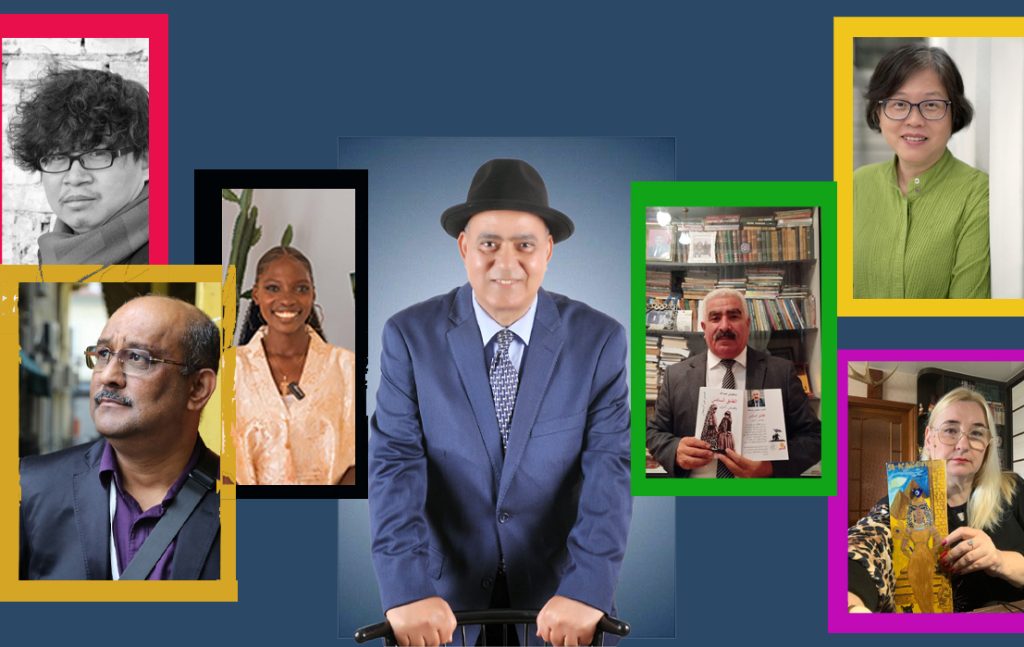
The six celebrated authors were Hemant Divate (India), Cao Shui (China), Miao yi- Tu (Taiwan), Esther Adelana (Nigeria), Inna Natcharova (Russia), Mexosh Abdullah (Azerbaijan). The Creative meeting took an hour to host the 6 authors, from 10:00 to 11:00 AM (Egypt local time), corresponding to 9:00–10:00 AM in Nigeria, 11:00 AM–12:00 PM in Russia (Moscow), 12:00–1:00 PM in Azerbaijan (Baku), 1:30–2:30 PM in India (New Delhi), and 4:00–5:00 PM in both China (Beijing) and Taiwan (Taipei).
Together, these voices underscore the Silk Road Literature Series’ mission to bridge cultures through translation and shared creativity.

